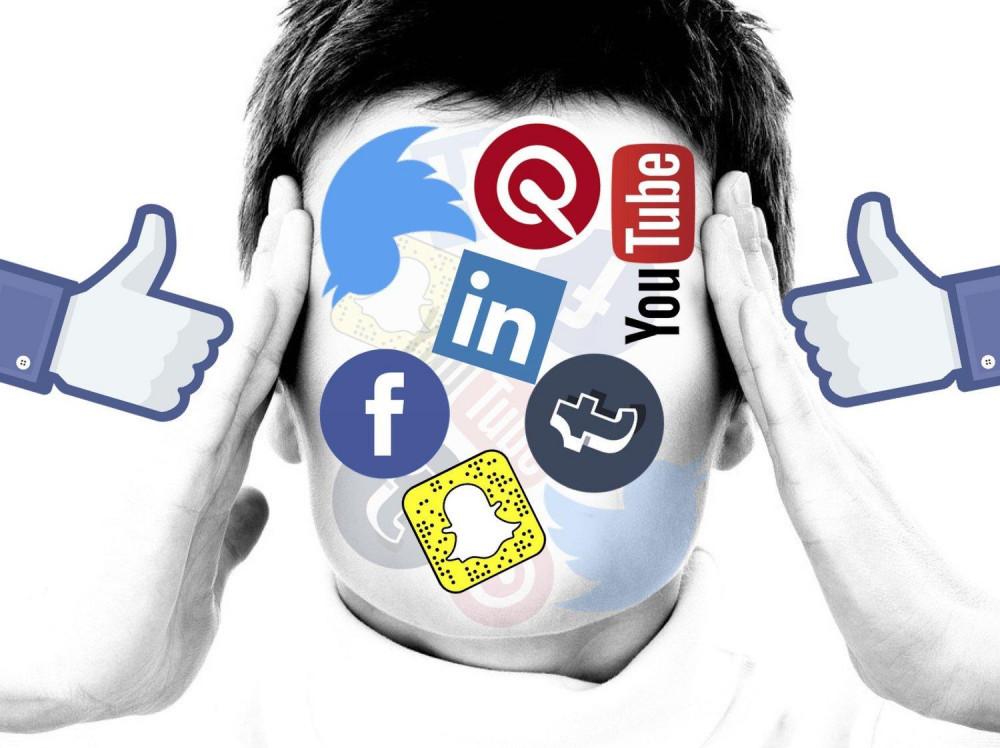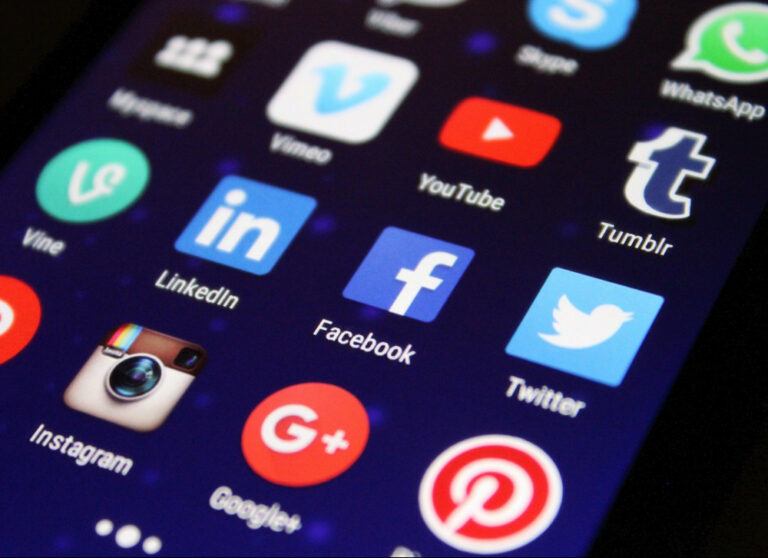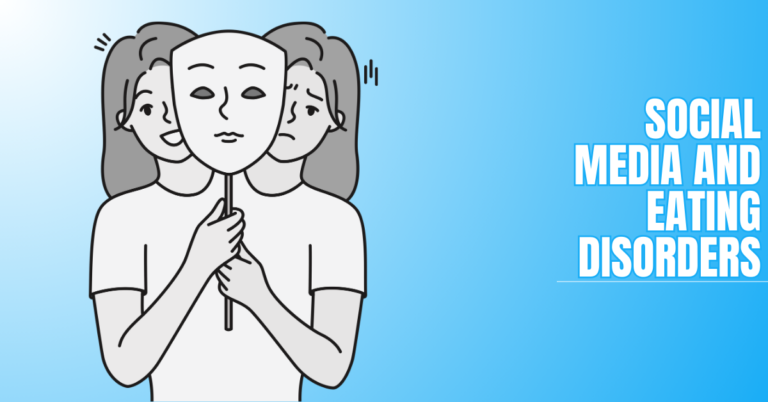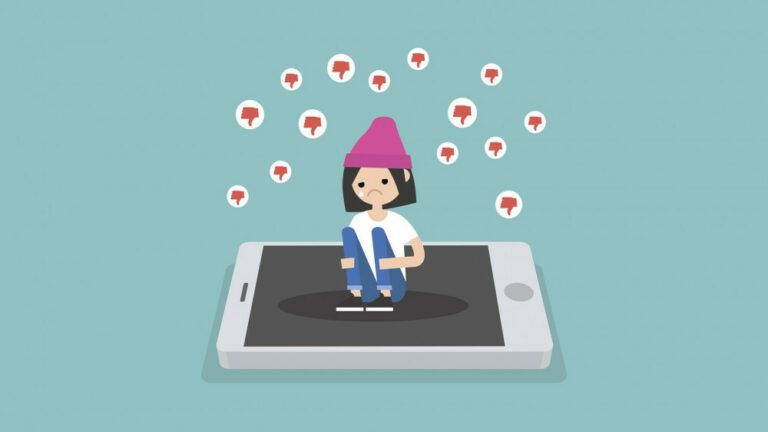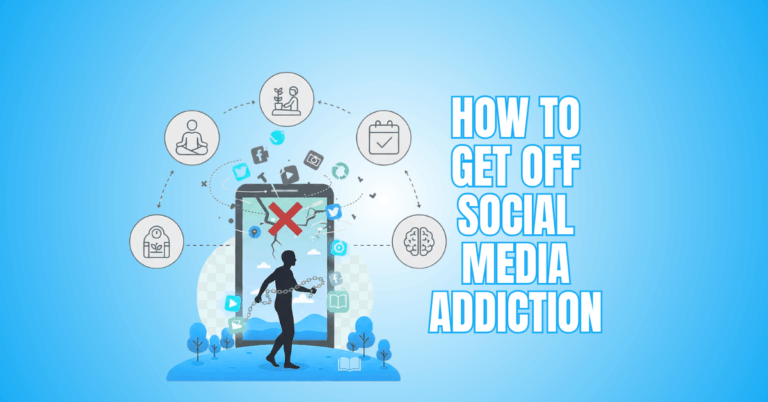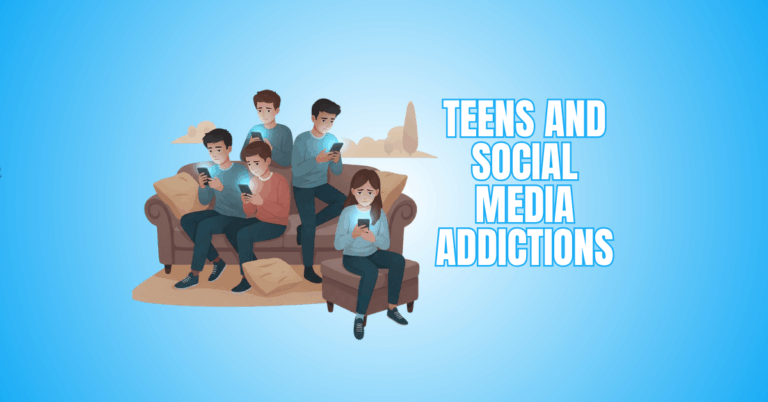Social Media And Mental Health
Social Media And Mental Health
Human beings are social creatures. We need the companionship of others to thrive in life, and the strength of our connections has a huge impact on our mental health and happiness. Being socially connected to others can ease stress, anxiety, and depression, boost self-worth, provide comfort and joy, prevent loneliness, and even add years to your life. On the flip side, lacking strong social connections can pose a serious risk to your mental and emotional health.
In today’s world, many of us rely on social media platforms such as Facebook, Twitter, Snapchat, YouTube, and Instagram to find and connect with each other. While each has its benefits, it’s important to remember that social media can never be a replacement for real-world human connection.
It requires in-person contact with others to trigger the hormones that alleviate stress and make you feel happier, healthier, and more positive. Ironically for a technology that’s designed to bring people closer together, spending too much time engaging with social media can actually make you feel more lonely and isolated—and exacerbate mental health problems such as anxiety and depression.
Social media has a reinforcing nature. Using it activates the brain’s reward center by releasing dopamine, a “feel-good chemical” linked to pleasurable activities such as sex, food, and social interaction.
The platforms are designed to be addictive and are associated with anxiety, depression, and even physical ailments. According to the Pew Research Center, 69% of adults and 81% of teens in the U.S. use social media. This puts a large amount of the population at an increased risk of feeling anxious, depressed, or ill over their social media use.
Many people in today’s world live with their smartphones as virtual companions. These devices use electronic social media networks that alert users to updates on friends, favourite celebrities, and global events. Social media has become firmly integrated into a lot of people’s daily lives. According to the Pew Research Center, 72% of people in the United States now use social media.
At its core, social media is a powerful communication tool that has changed how individuals interact with one another. It speeds up how people exchange and share information, thoughts, and ideas across virtual networks. However, social media does have downsides. Some evidence suggests that its use — in particular, its overuse — can negatively affect mental health in numerous ways.
Social Media
Make social media time count by using it to take more breaks, get more sleep, and eat healthier food. Talk to your doctor and follow your doctor’s instructions for how much social media time you’re allowed to have. Social Media Avoidance – When you feel overwhelmed or your stress level spikes, your natural instinct is to avoid some of your sources of anxiety by tuning them out. But this can be ineffective and even counterproductive.
For example, when you want to take a break from social media, try to turn off your notifications for a while so you’re not tempted to check for new messages while you’re doing other things. You might also limit your time spent browsing social media by setting up auto-posting on Facebook or using other apps that automatically post to your wall when you use them.
Allowing yourself the time to disconnect from social media and the Internet is vital for your physical and mental health. You want to take some time to concentrate on yourself and your family, spend more time exercising, and reduce the amount of time you spend engaging with social media.
It’s even better to use this time for social media detoxing and self-care. With a regular social media detox, you’ll find that it’s easier to deal with incoming messages and content, and focus more on what you really care about and are interested in. You’ll also have less time to worry about your digital footprint and gain a better understanding of what’s really important in your life.
The Value Of Face-To-Face Connections
In addition to offering the opportunity to connect with and spend time with friends, family, and loved ones, social media can also make you feel less isolated, more connected with others, and even help to ease the pain of losing a loved one. But just because you’re physically close to someone doesn’t mean that you can’t feel lonely.
If you’re grieving and feeling isolated, social media can help bring you back to the world of the living. It can also be a helpful way to stay in touch with someone who you know is suffering, by providing you with an outlet to offer comfort and support. Allowing yourself to let your true feelings be known is the most effective way to improve your mental health.
Research shows that face-to-face interaction helps improve quality of life. According to a 2009 study by Rethink Research, social isolation can lead to a dramatic decrease in physical and mental health, declining cognitive ability, and overall happiness. One surprising finding: People feel more socially connected when they’re isolated from others.
While this might be intuitive, the causes of social isolation are often overlooked and misunderstood. More than 3 billion people worldwide currently live in isolation, and many are highly vulnerable to the negative effects that social isolation and loneliness can have on their health. The people most at risk are those living with mental health problems and those with chronic illnesses such as cancer or heart disease.
Recent studies conducted in Ireland found that those who spent more than 12 hours per day using social media platforms were at greater risk of depression than those who didn’t. Having a balanced social media presence with good friendships, family relationships, and meaningful connections to the community is important to maintaining a healthy mind and body. Social media may be fun and quick, but it can often leave us feeling lonely and sad—and that can negatively impact our mental health and overall well-being.
Benefits Of Social Media
If you’re inclined to check your Facebook feed or send a few text messages on the regular, it might be worth thinking twice before doing so. Many of the platforms you’re using to connect with friends, family, and loved ones aren’t designed to promote emotional wellbeing or connection, but rather to present an endless stream of irrelevant information or opportunities to connect with people you wouldn’t otherwise have contact with. The danger of relying on social media as your main source of support is that it’s like spending all of your time in an overly-anxious state of socializing, especially if you’re already susceptible to anxiety.
One study found that, despite a decline in the amount of time people spend on the platform, individuals actually spend more time on it, on average, than they did in 2010. While this may not sound like a good thing, remember that it is a very small amount of time. In fact, the researchers point out that it is only enough to function as a distraction or to be engaged in an enjoyable activity.
The benefits of social media extend far beyond just social connection. Research has shown that the average Facebook user spends more than an hour a day on the platform. Instagram, Snapchat, and Twitter also offer benefits such as openness and acceptance. What’s more, many social media platforms focus on sharing and connecting—both on and offline.
These companies know that social interactions have many benefits for the body and mind, but there’s also a concern for their potentially negative effects. That’s why these companies have put out ongoing and well-rounded policies in regards to not only how people can use their platforms, but also when and how they’re able to intervene on behalf of those who may be experiencing harm.
Drawbacks Of Social Media
First and foremost, it can be incredibly addictive. However, a recent study by the University of Pittsburgh found that social media use is actually linked to a more socially isolated lifestyle. The researchers found that social media users experienced increased levels of anxiety and depressed moods than those who don’t use social media at all.
They also found that those who engage in frequent Facebook or Instagram use reported a greater degree of social isolation. And although social media has the ability to enhance social connection, it also appears to increase feelings of social isolation. In a study that examined the impact of Facebook, the researchers found that people who spent more time on Facebook reported higher levels of social isolation.
Social media can also negatively impact our physical and mental health if we spend too much time scrolling through posts on our devices. An increased amount of time spent with social media also increases the risk of a depressive or anxiety disorder. “We’re constantly bombarded with input about how wonderful we are.
Facebook, Instagram, and Snapchat make it incredibly easy to broadcast our most intimate thoughts and feelings,” says Nicole Belkin, LMSW, LMFT, MFT, a mental health expert in Santa Monica, CA. “These platforms are designed for participation and, when you put things out there for everyone to see, you end up feeling quite exposed.
We’re constantly reminded of the number of likes we have and how much people care about what we’re posting, so it becomes a performance.”
Even the most positive aspects of social media can lead to some challenges. It may feel great to get instant feedback on your social media posts, but this can also lead to a comparison problem. One of the most common ways we compare our lives to those of others is by showing photos of ourselves on social media.
In essence, we’re comparing our best photos to the others’ best photos. Without looking very closely, we may not even realize we’re doing it. Many times, we’ll take a photo of our best outfit and caption it “I wore this dress to my cousin’s wedding in Brazil!” While it may be a fun story to share, it’s the exact same photo of your cousin in her wedding dress and you in your outfit, taken exactly the same way.
Practical Strategies For Building Healthy Social Media Habits
Use technology to connect with the people you care about. If you need help staying connected to your loved ones, consider a service such as Facebook Messenger to send your daughter a smiley face to brighten her day or invite your niece or nephew to be your live question and answer session on Facebook. If you need to check in with a customer service representative, use an app such as Hey Sassy to keep up with them. Social media can feel like a real-life pit of despair if you’re not paying attention. But that pit can be avoided by being active on social media and making use of social media apps.
After reading all of the above research and learning more about the serious dangers of excessive social media use, it’s important to make positive changes in our social media usage. While it’s easy to want to quit Facebook cold turkey and forget the technology, the best way to beat social media addiction is to use it mindfully.
One way you can cut back on social media usage and, at the same time, boost your well-being is to meditate daily. Meditation has been shown to be very effective in lowering your risk of becoming addicted to social media. It reduces feelings of stress and increases positive emotions, helping you feel more content with life. Meditation has been shown to be very effective in lowering your risk of becoming addicted to social media.
How Social Media Impacts Mental Health
Social media doesn’t exist in a vacuum. Much like watching TV, listening to music, or even going out to a coffee shop to chat with friends, social media can create a sense of intimacy and community. However, these relationships have the potential to be negative if not monitored and maintained by parents, teachers, and friends.
According to one study, spending too much time on social media can put a strain on relationships, which in turn can lead to depression and even suicide. Even if social media use is not problematic, simply being around people too much can take a toll on mental health, contributing to feelings of loneliness, sadness, and emptiness. Social media is designed to foster connection and a sense of community.
Aside from putting a strain on relationships, social media addiction can lead to depression, anxiety, and panic attacks. But it’s not just social media that can impact mental health—social activities can too. In fact, according to a study in the journal Social Psychological and Personality Science, people are more likely to be depressed if they spend too much time with friends and family.
Parents who spend too much time on social media may contribute to the onset of depression in their children. “In general, people's brains are much better at monitoring the outside world and less good at monitoring their internal states, which may be a general feature of the human brain,” psychologist Stephanie Jackson-Lee told Parents.
We know social media isn’t good for us because studies have consistently shown that it can lead to everything from lowered self-esteem to higher rates of depression. But what is it doing to our brains? Research indicates that it’s causing changes in our brains and, among other things, hurting our brains’ ability to think clearly and make decisions and contributing to increased impulsivity. The good news is that there are plenty of ways to use social media in a positive and productive way—you just have to be aware of what it’s doing to your brain and work a little at changing it.
Understand The Effects Of Social Media
Psychologists have known for a long time that spending too much time online can have a detrimental impact on your well-being. So, what does the research say? A small 2011 study conducted by researchers at the University of Michigan, led by Jeff Hancock, a professor of psychology at the university, found that adults who used social networking sites such as Facebook, Twitter, and Flickr spent, on average, about 14.2 hours per week online.
The team also found that their users were also more likely to have depression, anhedonia (a lack of enjoyment and pleasure), loneliness, anxiety, and anti-social behaviour (referring to antisocial behaviours such as substance abuse).
You can’t ignore social media completely. In fact, following these guidelines can help you become a better, more mindful social media user—not just for your own mental health, but for that of your friends and family as well.
Set Realistic Resolutions
Instead of jumping on social media just because it’s midnight and you’ve eaten a box of black licorice, set a realistic resolution that can help you feel better about yourself. If you need to cut down on your online social media use, do it gradually, starting with one day and then moving on to a week, and then cutting it out entirely.
Remove Distracting Features
If your phone or tablet is constantly beckoning for your attention, you are more likely to become addicted to it.
Social media companies tend to focus on what they’re doing to improve users’ online experience. But they don’t often address the potential negative effects of spending too much time using these platforms, which is why more people are starting to question their impact on our health.
There are some obvious negative effects, such as how social media use can negatively impact a user’s well-being and lead to more time spent looking at screens. But many social media platforms are also introducing tools that help users interact in ways that promote positive relationships and manage their social media use.
Strategies To Help Yourself
If you’re constantly on the go, getting too much screen time can leave you feeling overworked, irritable, and low in energy—and a great way to combat those feelings is by setting time limits and limiting how much time you spend on social media. Get together with your closest friends and family and make a social media fast together, or designate a day each week that you can be online only for work and errands.
Block your favourite apps on your phone or laptop so you can’t get onto Facebook or Instagram when you want to be offline and stop checking in as often. While you do need to have some access to these sites and you can still have conversations with your friends online, try to limit the amount of time you spend online, especially before you hit your bed.
Get a life—Social media apps that are purely about communication, such as Facebook and Twitter, only add to your feelings of isolation when you neglect or neglect to spend time in other online activities that would provide positive social interactions. If you can’t carve out a chunk of time to interact with other people on social media, you’ll miss out on valuable and important opportunities for face-to-face interactions with the people in your life.
Strategies To Help Others
According to Elizabeth Lombardo, a psychology professor at the University of Pennsylvania, social media use is linked to loneliness and lower levels of well-being, which is a major risk factor for physical illness. Lombardo recommends that people spend less time on social media, especially during the daytime, since the blue light that’s emitted from screens can keep people up at night. For those who can’t avoid it, Lombardo advises using a filter, like Blue Light Filter by Focal Point, which turns the blue light back to red, so people can still check notifications and Facebook, but not be distracted from their sleep schedules.
“Those of us who are seeking positive changes in our life can best contribute to this by seeing others through a new lens—using the energy of positive thinking and channelling that energy to those who need support,” says Michener. “By finding ways to offer hope to people you don’t know personally, your mental health improves and so do your relationships.” You can also use social media to encourage the kindness, support, and compassion that Michener says will ultimately make a big difference in someone’s life.
Conclusion
Social media can be useful, but it’s also a breeding ground for loneliness and social isolation. That’s why I set out to explore the extent to which social media makes us lonely. This article was originally published on The Conversation.
Although loneliness can be a problem that plagues many adults of all ages, teenagers are particularly susceptible to the issue. According to the U.K.-based charity the YoungMinds, one in five teenage girls will be socially isolated at least once a month. Teenagers who feel lonely often deal with negative feelings like sadness, hopelessness, and lack of energy, and they’re more likely to get distracted, sleepless, and become depressed.
Even with plenty of social media platforms, teenagers can still feel isolated. In fact, 42 percent of teenagers admitted to feeling lonely even though they were part of a large group. When it comes to fighting loneliness among adolescents, the key is to create activities and meetups where everyone has a chance to interact with everyone else.
I trust you enjoyed this article about Social Media And Mental Health. Would you please stay tuned for more articles to come? Take care!
JeannetteZ
Want to Learn How to Build Your Own Home-Based Online Business & Start Making Money Online From Your Comfortable Couch?
Try Wealthy Affiliate!
Your Opinion Is Important To Me
Thoughts? Ideas? Questions? I would love to hear from you. Please leave me your questions, experiences, remarks, and suggestions about Social Media And Mental Health, in the comments below. You can also contact me by email at Jeannette@WorkFromAnywhereInTheWorld.com.
You may also enjoy the following articles:
Does Social Media Cause Depression?
8 Best Affiliate Marketing Niches To Make Money
7 Best Strategies To Make Content Go Viral
The 9 Best Free Blogging Platforms

